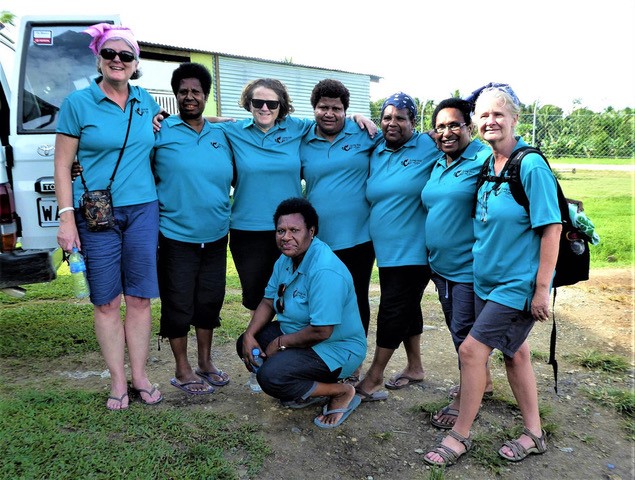
Sara David Founding CEO Living Child Inc
This plea led midwife Sara David to travel to a very isolated part of Papua New Guinea (PNG) south of the town of Wewak, the capital of the East Sepik province of PNG.
Most of the travel was via the Sepik River, one of the 10 largest rivers in the world. There are no roads.
What Sara saw was very confronting. High child and maternal mortality, and no access to any support.
Sara set up the charity Living Child Inc. in 2012 to provide support for communities through training midwives and other women who can diagnose potential difficult births, as well as help reduce the chances of infections occurring during and after giving birth.
Even with high infant mortality, some of the mothers surviving quite often complained that they had three babies to look after: “one in the belly, one on the hip, and one at my feet”.
Through the use of birth control implants, they are now able to choose when and how many children they have, they will be able to give birth safely and their children will have every opportunity to grow and thrive, all thanks to Living Child Inc.
Applecross Rotary has been a supporter of Living Child Inc. for a number of years, as has Melville Rotary. Our most recent grant has enabled a number of midwives to travel to a training workshop in Bali. Previous grants have provided clean water storage units and compostable toilets. Sara’s work has been recognised with a Paul Harris Fellowship, and the recent award of an Australian Honour, Member of the Order of Australia (AM).

Sara David (left) with some other members of Living Child Inc. and some of the women it has trained.
About Living Child Inc.
The focus of its work is in the villages that make up the Keram River area of East Sepik Province. This area is some of the most remote and neglected by government services, in the country. It is renowned for it's wood carvings and the people are called the River People because they live on the many river systems that empty into the mighty Sepik River delta. The people are strong and resourceful, surviving on local produce of fish, wild pigs, cocoa, betelnut, coconuts and bananas. But, accessing basic services such as health, education, clean water and sanitation are severely impacted by poor infrastructure, a high-water table, no telecommunications and long travelling distances over difficult terrain.